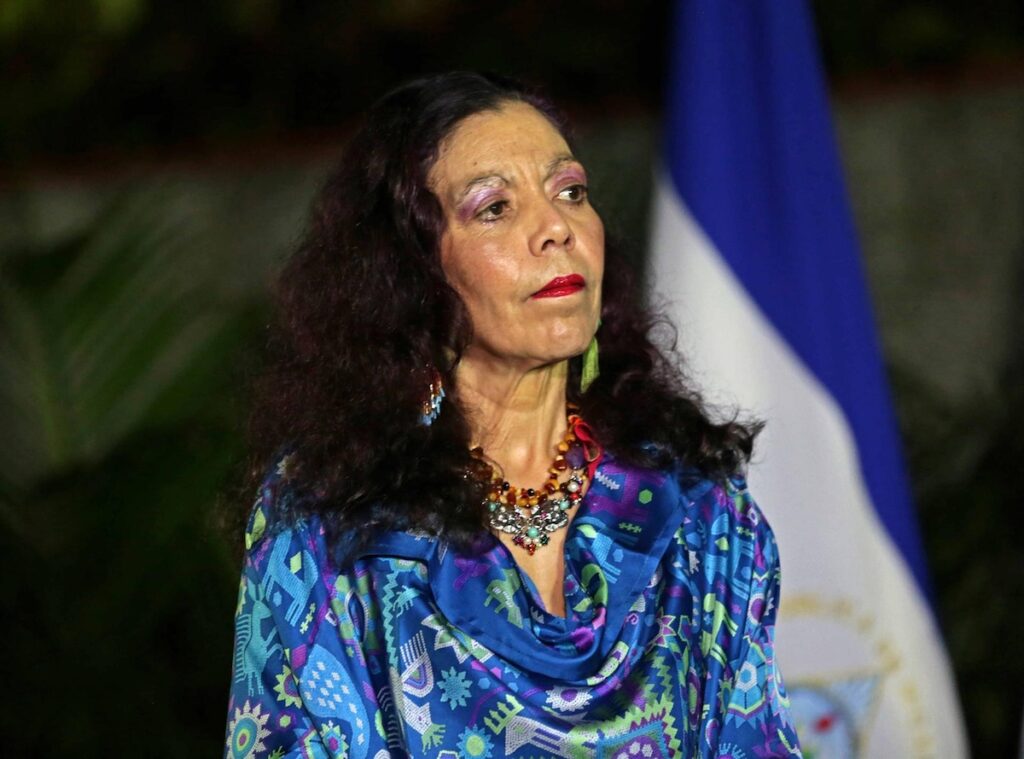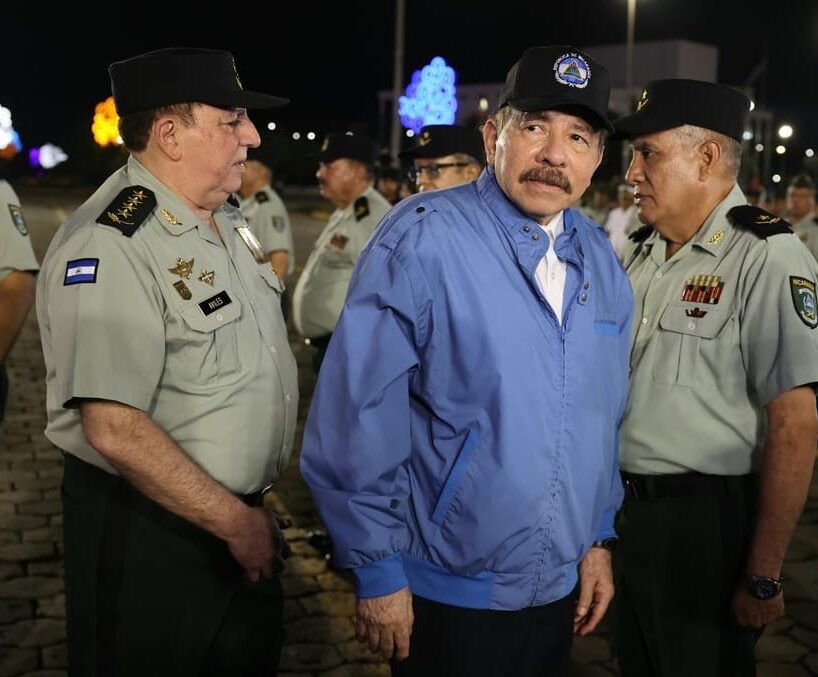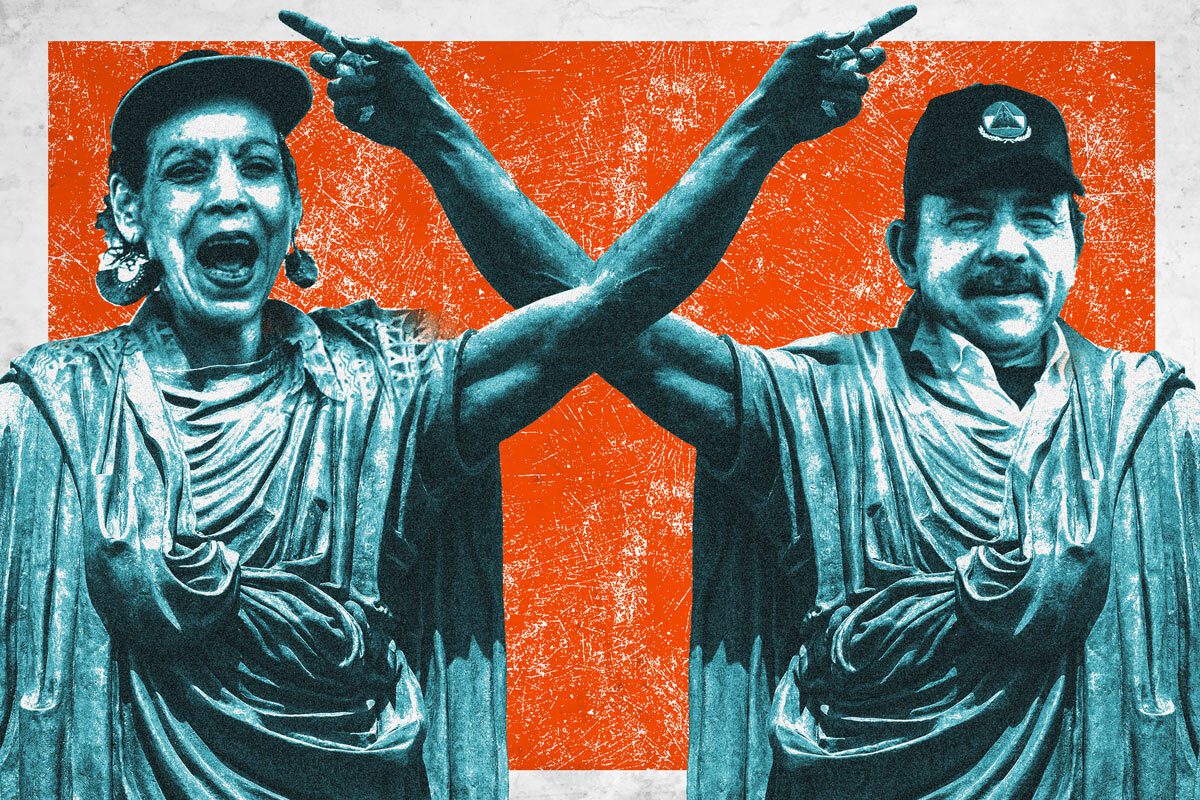The sweeping overhaul of Nicaragua’s Constitution, directed by Daniel Ortega and Rosario Murillo, formalizes a dynastic succession in the country. Among the more than 100 articles amended, the reform establishes the role of “Co-President,” a position Rosario Murillo already had in practice. Additionally, the co-presidents can “appoint vice presidents to carry out assigned duties.” According to Sandinista sources, this change addresses a long-standing goal: securing their family’s hold on power.
The revised Article 135 extends Nicaragua’s presidential term from five to six years. Under the new Article 132, the co-presidents are granted absolute authority over the Nicaraguan State.
“The Presidency of the Republic oversees the Government and, as the head of State, coordinates the legislative, judicial, electoral, regulatory, fiscal, regional, and municipal bodies in alignment with the supreme interests of the Nicaraguan people and the provisions of this Constitution.”
The dictators have also constitutionalized their ability to appoint and remove ministers, deputy ministers, prosecutors, directors of autonomous and government agencies, ambassadors, and heads of special missions, continuing the practice of state purges they have carried out de facto.
In a pointed jab at hundreds of dissidents stripped of Nicaraguan citizenship, many of whom adopted other nationalities to avoid statelessness, the reform prohibits them from running for presidency.
The revised Article 8 unequivocally states that the separation of powers—already non-functional in Nicaragua—is formally abolished and subordinated to the co-presidents’ directives. It reads:
“The people exercise State power through the Presidency of the Republic, which leads the Government and coordinates all State bodies.”
Resolving the succession issue

The constitutional creation of co-president positions resolves the succession issue that Ortega and Murillo have struggled with for years—a politically sensitive and unpopular topic. This issue first emerged in 2017 when Murillo was appointed vice president and later named co-president by Ortega.
Eliseo Núñez, an exiled opposition lawyer and former lawmaker, describes the co-president roles as an unprecedented invention:
“It’s unclear what responsibilities belong to each. There’s no legal precedent for this, but they’ve made it official. The absurdity is that they now coordinate all branches of the State according to the Constitution.”
Jesús Tefel, president of Hagamos Democracia, explains that the reform resolves internal power struggles between Ortega and Murillo by consolidating their authority into a single leadership role.
“This measure not only secures short-term succession for Murillo but also resolves the next stage of succession, likely involving Laureano Ortega,” says Tefel. “It also allows them to keep the position available to satisfy other groups, such as the military, without involving public elections.”
Army given authority to repress, paramilitaries legitimized

One of the most concerning and alarming aspects of Ortega and Murillo’s constitutional reform is Article 94, which grants the Presidency the power to “order the intervention of the Nicaraguan Army in support of the National Police when the stability of the Republic requires it.” This means the military can now legally engage in political repression, a role the National Police have primarily played since 2018. Ortega and Murillo label any dissent or criticism as an attempted “coup” or “destabilization” of the country.
While the Nicaraguan Army has repeatedly denied its involvement in political repression, evidence indicates that its Defense Intelligence Directorate (DID) has conducted espionage and harassed political opponents. Military personnel have also been implicated in the arrest and killing of dissidents since the 2018 protests.
During the 2018 “Operation Cleanup,” paramilitaries unleashed deadly violence across the country, using high-caliber weapons that were meant to be reserved for the Army. The National Police Chief justified their actions, labeling them as “volunteer police.”
Now, Article 97 of the reform officially establishes the “Volunteer Police” as an auxiliary force supporting the National Police, made up of Nicaraguan citizens who offer their services voluntarily.
“With this reform, Ortega and Murillo transform the Nicaraguan Army into a clear tool of repression, much like the National Police. It becomes an armed branch used to confront dissent, which they label as traitors to the homeland,” Tefel explains.
As for these so-called “traitors,” Article 17 of the reform constitutionalizes the arbitrary stripping of Nicaraguan nationality from more than 400 people, including presidential candidates, dissidents, journalists, clergy, writers, and artists.





